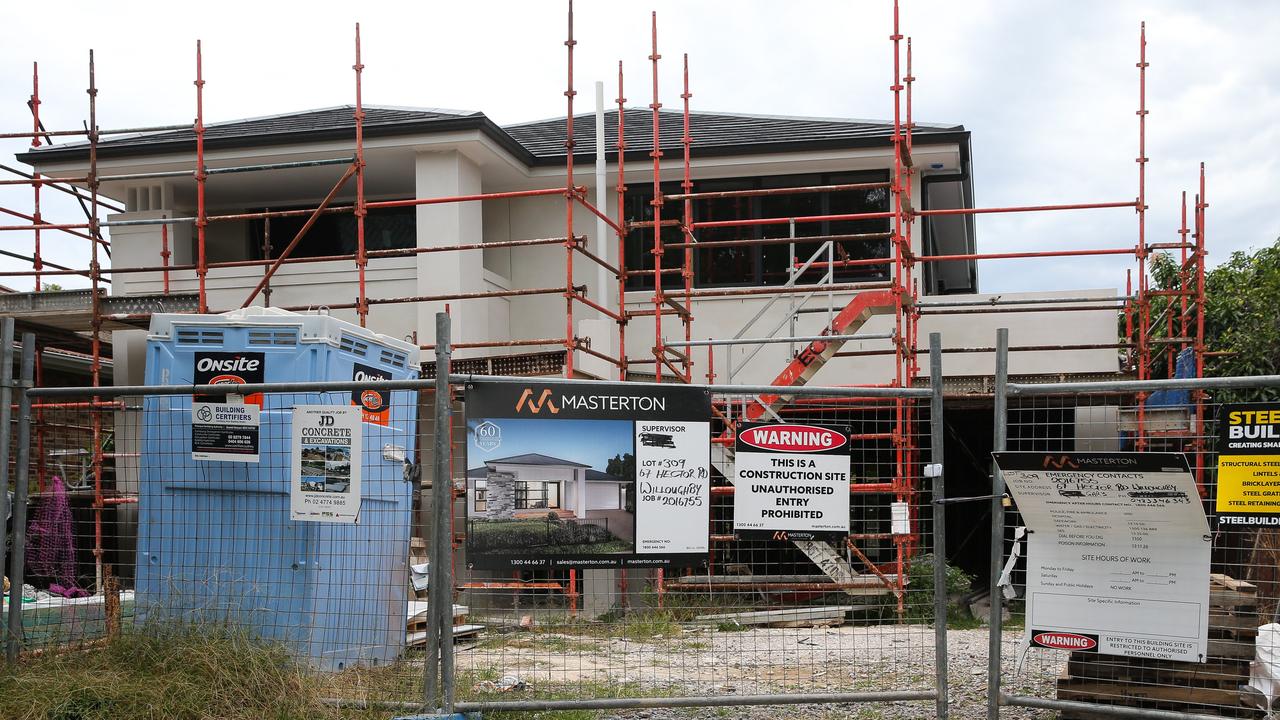Cutting back on basics as rates bite
HOMEOWNERS are cutting back on necessities as well as luxury items as they struggle to cope with rising interest rates.
Cutting back on basics as rates bite
HOMEOWNERS are cutting back on necessities as well as luxury items as they struggle to cope with rising interest rates, a survey by NEWS.com.au and Core Data reveals.
The survey found that if home loan rates keep rising 47 per cent of property investors and a third of homeowners would be forced to sell up.
But selling up is a last resort, and many of the 2331 NEWS.com.au readers who responded to the survey said they were cutting spending in order to keep up with their mortgage repayments.
“I’m cutting out the fun stuff, both in my life and my diet,” said one respondent.
But it’s not just fun stuff going by the wayside, other readers reported they had cut back on groceries, extra-curricular activities for their children as well as financial basics such as insurance and emergency savings.
The experience of one homeowner, whose mortgage repayments have risen by $400 a month in the past two years, seemed to sum up the experience of many other cash-strapped respondents.
“I can no longer provide luxuries to my family and shopping is tightly budgeted. My children can’t pursue outside school interests due to us not having the money to pay for it. And worst of all some basic necessicities such as home, motor and health insurance have all been cancelled to ensure the mortgage is paid month in and out.”
For some cutting back on social outings is necessary – if a little embarrassing sometimes.
“I’m not going out as much socially, and I’m making excuses ie not feeling well rather than telling friends it’s out of my budget,” another respondent said.
For others, the situation is already desperate. “There are days I don’t eat so my kids can. My husband is taking on extra work to make payments.”
Another reader regretted buying a house, saying all his money was now directed at interest payments.
“All this talk of people spending money…well it sure isn’t us. We sleep on the floor on air beds because we can’t afford a mattress. It’s definitely not worth the pain of buying a house, much better to rent.”
Banks were unpopular with most respondents, with 70 per cent thinking they were not justified in raising home loan rates beyond official hikes made by the Reserve Bank.
“I’m absolutely disgusted by the greed shown by banks….Our Government has become a useless player in managing and promoting a competitive banking environment,” was one response.
With the focus firmly on meeting mortgage repayments emergency savings and insurance have fallen by the wayside.
“We’ve been drawing on savings to get by, which moves us from being in a comfortable position, to just managing,” was just one comment from dozens of people who’d given up on a rainy fund.
Many others had cancelled insurance policies, adopting a fingers-crossed attitude that accidents or illness won’t send them further into financial trouble.
What to do if you’re falling behind in repayments
According to the RBA, only a small percentage of people who fall behind in their mortgage repayments have their houses repossessed. Most eventually dig themselves out of their financial hole and manage to get back on track. Here are some tips on what to do if you are falling behind.
• As soon as you miss a repayment get legal advice and contact your lender about trying to work out a repayment schedule.
• Under the Consumer Credit Code, if you’ve fallen on hard times due to illness, injury or job loss you might qualify for a hardship variation to your repayments.
• If rejigging repayments is not an option, try to sell the house yourself rather than let it go at a mortgagee sale. You need to do this before your lender starts court action. Although banks are legally bound to try to get the best price possible for a house, the RBA says voluntary sales seem to fetch between 15 to 20 per cent more than mortgagee-in-possession sales.
• In some circumstances borrowers can dip into their superannuation to get their home loan back on track. The Australian Prudential Regulation Authority needs to approve the early release of superannuation. In 2006, APRA approved 13,781 applications for the early release of super due to financial stress resulting from either mortgage payments or medical expenses. This worked out at $135 million, compared to the $77 million released early the previous year.
Be careful. Only do this if you think your financial difficulties are short- term. If they are ongoing, you might still lose your house and have little superannuation to fall back on.
• Depending on your policy, some insurance companies will cover home loan repayments. This will only be possible with policies like income protection or mortgage protection insurance.
Lender's mortgage insurance - which you generally have to take out if your deposit is less than 20 per cent - protects the lender, not the borrower.
• Several state governments, including NSW, Victoria and Queensland offer short term, interest free mortgage relief loans to cover temporary shortfalls. You must live in the property and the loans will only be granted if the value of the house and size of the mortgage are under certain thresholds.



